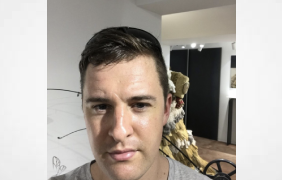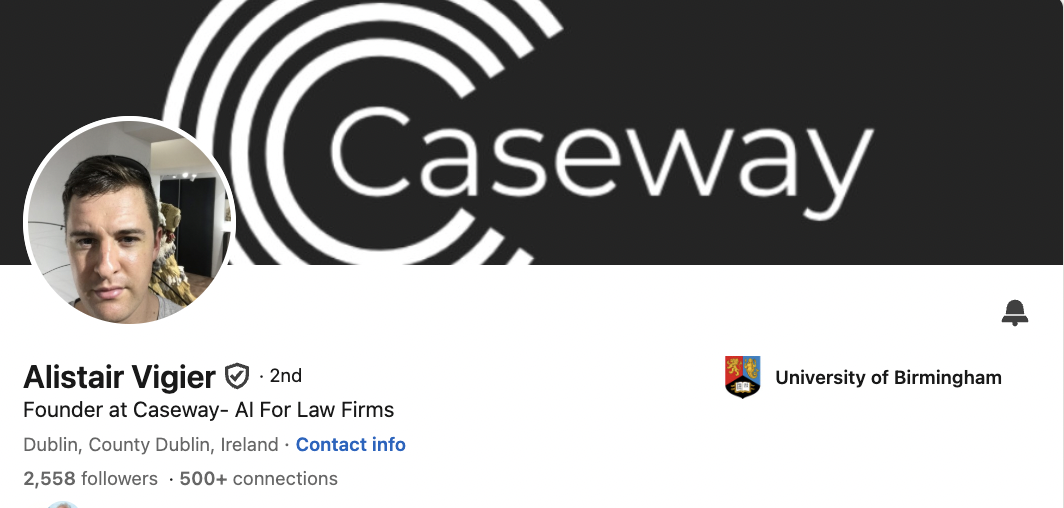As far as i can work there’s a little bit of hubris on both sides of the equation and it’s worth remembering that CANLII was built to a decent extent by taxpayers.. so if casway really do stay free and don’t sell to the highest bidder in 5 years time I see a case for their argument but I have to say my experience of the legal publishing market over the last 35 years suggests that when somebody build a database in the end they want to profit from it, one way or another. The LII’s in the main have been an exception to this rule
Who to believe?
I don’t know
Why the Caseway Lawsuit Isn’t About Justice
Aaron Wenner’s recent opinion, published in Canadian Lawyer titled “Why Public Access to Law Doesn’t Mean a Free-for-All,” tries to position the lawsuit between CanLII and Caseway as a noble defence of public interest.
But let’s not mince words—this isn’t about safeguarding access to justice. It’s about gatekeeping innovation in the legal space, and Wenner’s vested interest as the chief strategy officer of Jurisage, “Canada’s second-largest case law database,” makes that abundantly clear.
I wonder why the second-largest case law database wouldn’t want things to change.
Let’s break down the rhetoric. Wenner paints a picture of CanLII as a selfless protector of public legal access and positions Caseway as a rogue operator exploiting data. It is convenient to come from someone whose organization profits from maintaining legal data exclusivity.
The reality is that innovation from digital intelligence threatens entrenched interests like Jurisage and CanLII, which rely on a system of controlled access to publicly funded legal information. New companies can’t get into the space.

Who Owns Public Legal Data?
A fundamental question is at the heart of this debate: who owns public legal data? Courts produce legal decisions as a public service funded by Canadian taxpayers. Organizations like CanLII and Jurisage aggregate and organize this data; that takes effort, but not the raw text data.
But let’s not forget that this is public data—it belongs to all Canadians.
Aaron Wenner argues that organizations like CanLII must “convince courts to share their rulings” and handle the raw, unstructured data from the courts. True, but this doesn’t entitle them to act as gatekeepers. The law isn’t their intellectual property; it’s a public resource. Why aren’t the courts suing Caseway? It’s their work product, not CanLIIs.
At Caseway, we’ve committed to creating a free API for court decisions that don’t currently exist in Canada. We also work on a free AI-powered case law database because we believe in open access. Legal data shouldn’t be locked behind paywalls or limited to those with institutional ties.
And yet, when companies like ours try to innovate and improve public access, we’re met with lawsuits and accusations of data exploitation by companies that have received grants and enormous profits from the data for many years.
Gatekeeping Under the Guise of Responsibility
Aaron Wenner frames CanLII’s lawsuit as an attempt to protect the ecosystem that enables public access to legal data. But let’s not ignore the business interests at play. Jurisage and CanLII operate within a model that benefits from controlling access to legal information. Of course, Wenner wants to keep AI companies out of the space—Caseway represents competition to the status quo.
He claims that allowing companies like Caseway to “scrape and repurpose data,” which we don’t do, undermines public access.
How?
By making legal information more accessible and valuable to the public?
Our legal tech software goes beyond aggregating raw case law; it uses AI to provide summaries, insights, and user-friendly interfaces that empower Canadians to deal with the justice system. It also makes it easier for law firms to practice law.
Wenner and his peers would instead maintain a system where public legal data is available—but only if you go through them to access it, assuming they let your company in, which they don’t.
A System Failing Most Canadians
Let’s not lose sight of the real issue: Canada’s legal system is failing most people. Seventy percent of Canadians facing legal challenges don’t have a lawyer. Legal costs are too high, resources are too limited, and dealing with the legal system is prohibitively complex for most individuals.
Aaron Wenner praises CanLII as a “shining example” of public access, but let’s be honest—CanLII doesn’t solve these problems. Its database, while valuable, is complex for non-lawyers to work with. It provides access to case law but no guidance. It’s a tool built for lawyers, not for the general public.
Caseway’s AI tools are designed to bridge that gap. By analyzing legal data and providing easy-to-understand insights, we aim to make the justice system accessible to everyone—not just those who can afford a lawyer or have a law degree. We also believe bridging this gap will mean more people hire law firms using AI tools.
Innovation Is Not Exploitation
Wenner draws a hard line between “public access” and “commercial use,” implying that innovation in this space is inherently exploitative. This is a dangerous narrative. Innovation doesn’t undermine public access; it expands it.
Imagine if we had taken this stance in other sectors. Should Google Maps have been barred from using public geographical data to create a revolutionary tool?
Should public health research remain locked away because private companies might develop life-saving treatments? Innovation often builds on public resources, and when done responsibly, it benefits everyone.
At Caseway, we’re not just building tools for lawyers. We’re creating solutions for individuals going through divorces, tenants facing evictions, and small businesses resolving disputes. These are people who CanLII and Jurisage don’t serve directly. The idea that we’re somehow undermining public access by making legal software more inclusive is absurd.
The Real Threat to Access to Justice
The real threat to access to justice isn’t AI companies like Caseway. It’s a legal system inaccessible to most Canadians, bolstered by gatekeepers who profit from the status quo.
Wenner warns against “permitting exploitation,” but let’s call it what it is: Caseway threatens its own AI business model. He isn’t defending public access; he is defending its turf.
I’m not saying the work of aggregators like CanLII isn’t valuable. It is. But that work shouldn’t translate into ownership of public legal data. The law belongs to everyone, and it’s time for the tools to access it, too.
The Future of Legal Innovation
Digital intelligence is not the enemy of access to justice—it’s the future. Tools like ours can speed up legal research, automate tedious tasks, and make the justice system more efficient and equitable. But to realize that future, we must challenge the gatekeeping that keeps innovation out.
The Caseway lawsuit started a significant debate about who controls access to the law. At Caseway, we’re fighting for a future where legal data is open, tools are inclusive, and justice is accessible to all. That’s a fight worth having—and one we’re proud to lead.
Author: Alistair Vigier, the CEO of Caseway.





